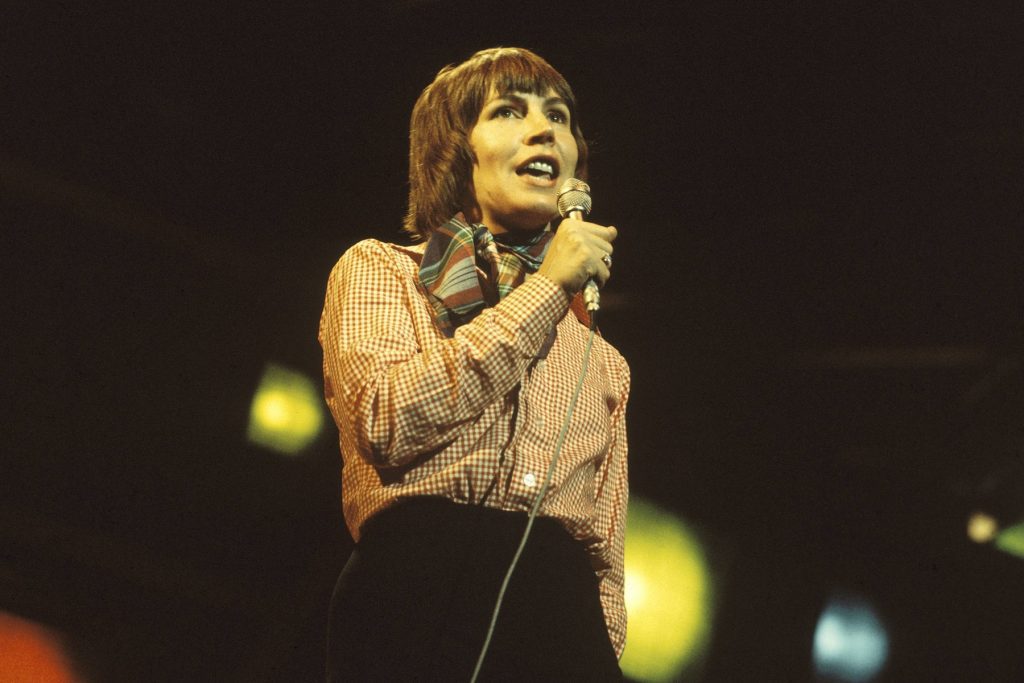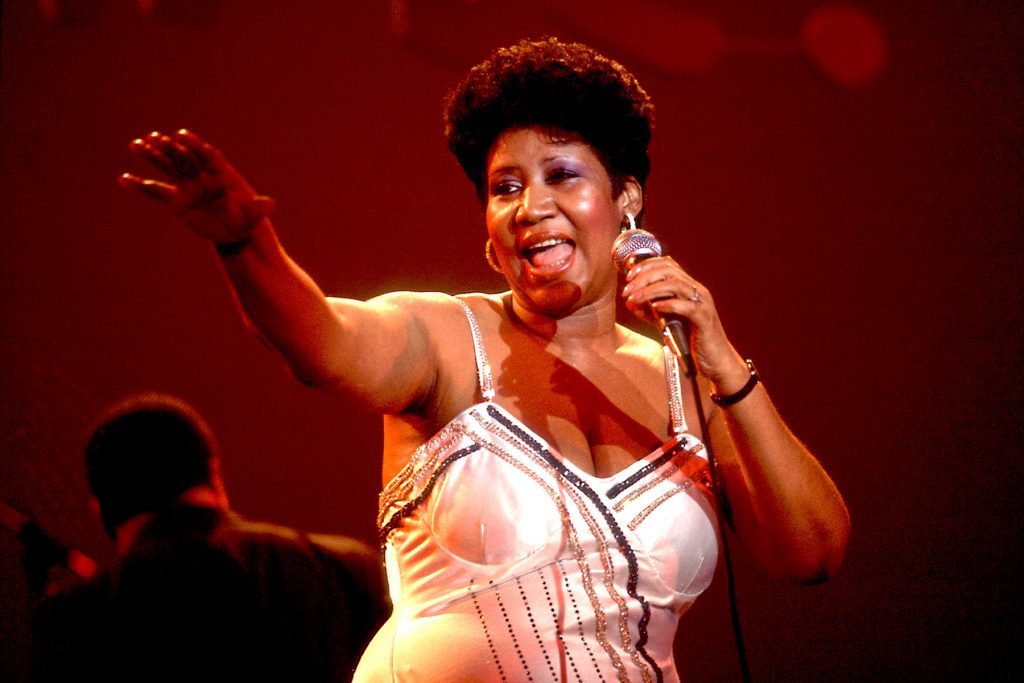
‘I Am Woman’: How Helen Reddy’s Feminist Anthem Quietly Changed Pop
Helen Reddy, the Australian pop singer who died Tuesday at age 78, was an unlikely pop superhero. She sang in a smooth timbre that never lost its becalmed manner — call her the anti-Joplin — and most of the Seventies hits for which she’s known (“Delta Dawn,” “No Way to Treat a Lady,” “Angie Baby”) were the essence of the smooth pop that appealed to baby boomers then approaching their settling-down thirties. Reddy was more of a regular presence on talk and variety shows and in Vegas than at rock clubs.
But sometimes it helps to subvert from within, and such was the case with the song and anthem for which Reddy will be best remembered. Was “I Am Woman” pop’s first feminist anthem? Possibly, even if one counts defiant early girl-group barrier-breakers like Lesley Gore’s “You Don’t Own Me.” But nearly 50 years after it first arrived, it’s easy to forget how momentous “I Am Woman” was — and how it set the stage for similar songs and sentiments that are an accepted, everyday part of contemporary pop.
blogherads.adq.push(function () {
blogherads
.defineSlot( ‘medrec’, ‘gpt-dsk-tab-article-inbody1-uid0’ )
.setTargeting( ‘pos’, [“mid-article”,”mid”,”in-article1″,”mid-article1″] )
.setSubAdUnitPath(“music//article//inbody1”)
.addSize([[300,250],[620,350],[2,2],[3,3],[2,4],[4,2]])
;
});
A Number One hit in late 1972, “I Am Woman” arrived at a time when women in music were expressing themselves in ways that few had done before. In the notoriously sexist music community of the time, Joni Mitchell, Carole King, and Carly Simon — not to mention Laura Nyro, British rock Suzi Quatro, and, soon enough, Patti Smith — were demolishing long-held assumptions about the ways in which women could write or produce their own material, and even lead their own bands.
Next to them, Reddy felt decidedly old-school. She’d first made a name for herself on an Australian talent show and then in a series of her own, Helen Reddy Sings, in her native country. Early in her career, she had the good taste to cover songs by cult balladeers Tim Hardin and David Blue. But before “I Am Woman,” her biggest American hit was a rendition of the lovely but subservient “I Don’t Know How to Love Him” from Jesus Christ Superstar, a song she admitted she wasn’t crazy about but was talked into covering by her manager.
In that musical context, anyway, “I Am Woman” seemed to emerge from nowhere. Although she’d been active in the women’s movement by then, Reddy, who rarely wrote her own material, said she never located songs that expressed those convictions. “All I could find were these awful songs like, ‘I am woman and you are man, I am weak so you can be stronger than,’” she once said, “so I realized the song I was looking for didn’t exist, and I was going to have to write it myself.”
She’d first cut a shorter, perky version of “I Am Woman” (written with guitarist Ray Burton) on her first album in 1971, and it was revived for a now-forgotten 1972 comedy Stand Up and Be Counted. When her label realized the song had hit potential, the track was re-cut, slowed down a bit and boosted with a brassier arrangement. Reddy added a new verse, with the then-controversial line “But I’m still an embryo, with a long long way to go, until I make my brothers understand.” Paralleling the hurdles women faced in pop at the first, it took the song six long months to climb to Number One.
At the time, social-consciousness pop could be strident or off-putting. “I Am Woman” had it both ways. It wasn’t just a clear-voiced anthem for the burgeoning women’s movement but also a terrific pop record — graceful and lithe, with hints of the gospel-pop movement in its chorus and the steady accompaniment of session pros like bassist Leland Sklar and keyboardist Michael Melvoin (dad of Prince cohorts Wendy and Susannah). The moment when Reddy’s voice reveals a hint of frustration and vulnerability in the chorus (“but look how much I’ve gained”) speaks volumes.
In proverbial bee-to-the-honey way, the radio-friendly “I Am Woman” made its points in ways that John Lennon’s same-year “Woman Is the N—– of the World” never could. Just as Vegas comedian and impersonator David Frye imitated Richard Nixon, bestowing mainstream cred on the idea of mocking a president, Reddy made feminism more accessible without sanding down its message.
blogherads.adq.push(function () {
blogherads
.defineSlot( ‘medrec’, ‘gpt-dsk-tab-article-inbody2-uid1’ )
.setTargeting( ‘pos’, [“mid-article2″,”mid”,”in-article2″,”mid-article”] )
.setSubAdUnitPath(“music//article//inbody2”)
.addSize([[300,250],[300,251],[620,350],[2,4],[4,2]])
;
});
The song made her a force, in ways that still boggle the brain. “Unless something very drastic happens,” opined one newspaper music columnist at the time, “Helen Reddy will be at the forefront of the pop-glam-folk, just-a-taste-of-rock-and-social-concern music movement.” Accepting her Grammy for Best Rock, Pop and Folk Vocal Performance,” she thanked “God because She makes everything possible.” (Again, this was 1973.)
Unfortunately, Reddy never overtly returned to the message of “I Am Woman,” opting instead for a series of easy-listening hits that largely avoided political connotations. She could still be spunky: Her version of “Raised on Rock,” from 1974, isn’t as smoldering as Elvis’ from the previous year, but give her credit for tackling it, along with the Beatles’ “One After 909,” the early Lennon-McCartney collaboration that was revived for Let It Be. Her finest post–“I Am Woman” moment was her version of “Delta Dawn,” which introduced that haunting piece of gothic-storytelling pop (a Tanya Tucker country hit the year before) to a pop audience that had little exposure to country radio at the time.
But all those year later, Reddy’s words in “I Am Woman” — “You can bend but never break me/’Cause it only serves to make me/More determined to achieve my final goal” — never sound more prescient. During those three and a half minutes on record, she quietly roared.
if(typeof(jQuery)==”function”){(function($){$.fn.fitVids=function(){}})(jQuery)};
jwplayer(‘jwplayer_VDObhzFN_zFOPDjEV_div’).setup(
{“floating”:true,”playlist”:”https:////content.jwplatform.com//feeds//VDObhzFN.json”,”ph”:2}
);




